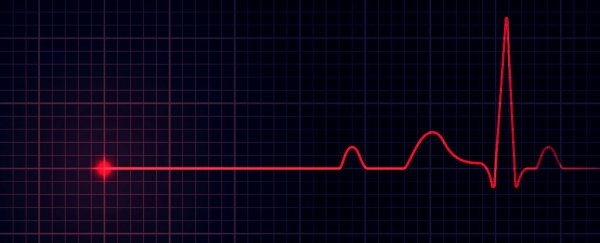The heart is the first functional organ to form in both bird and mammalian embryos, and in humans, conventional wisdom places its very first heartbeat at around day 21 or 22 after conception.
But scientists have found evidence that this crucial moment in life actually happens much earlier than that - the primitive cardiac muscle begins to contract around 7.5 days after conception in mice, which is equivalent to day 16 in the human embryo.
The early stages of embryonic development are so incredibly complex, we still don't know the exact details of what goes on within the first few weeks after conception.
We know that once conception happens, the resulting zygote (fertilised egg cell) travels down the woman's fallopian tube, starts to divide into a ball of cells called a blastocyst.
Shortly after the blastocyst forms, it will reach the uterus and burrow into the uterine wall for nourishment - a stage called implantation - and the embryo will begin to take shape.
Incredibly, almost nothing is known about the implantation stage of human development - one embryologist recently referred to it as a "complete black box" - because it's near impossible to safely observe the process in a living pregnancy without posing risks to the future child.
The stage that follows implantation - the formation of organs - is similarly obtuse.
If you look up a timeline of human embryonic development, you'll see that three weeks after conception, the embryo's vital organs are thought to start forming.
It's estimated that by around day 16 after conception, the heart and major blood vessels begin to develop, and the heart starts to pump fluid through the blood vessels by day 20 or 21. The first red blood cells will appear a day later.
But researchers from the University of Oxford in the UK have now brought that timeline into question, showing that the first contraction of the heart muscle occurs 7.5 days after conception in mice, which they extrapolated to be day 16 in humans - not day 20 or 21.
The team says this could have important implications for our understanding of congenital heart disease and how it develops.
"We are trying to better understand how the heart develops, and ultimately what causes the heart defects that develop in the womb before birth and to extrapolate to adult heart repair," says lead researcher Paul Riley.
"By finding out how the heart first starts to beat and how problems can arise in heart development, we are one step closer to being able to prevent heart conditions from arising during pregnancy."
To figure this out, the team added fluorescent markers to calcium molecules inside mouse embryos, which allowed them to see exactly when the calcium signals to the heart muscle cells to coordinate, contract, and produce a heartbeat.
Previous research has shown that this first muscle contraction occurs as soon the first functional structure of the heart is formed - called the cardiac crescent. The fluorescent markers allowed Riley and his colleagues to pinpoint this event at the 7.5-day mark in their mouse embryos.
To be clear, this has so far only been proven in mice, and while the researchers have made an educated guess as to how it applies to human embryos, we can't say for sure that it does.
But seeing as we're not going to be applying fluorescent markers to calcium molecules inside living human embryos any time soon, this is our best bet for figuring out what's going on inside our own bodies as they first form - in fact, basing our knowledge of human embryonic development at least in part on mouse embryos is a fairly common practice.
And in this case, knowing that the human heart could be contracting several days before we'd even assumed it was possible could have a profound effect on how we detect heart disease in growing babies. Even the smallest defects in heart formation can lead to congenital heart disease - a condition that affects at least one in 180 births in the UK.
"This study describes some of the very first stages in the development of a beating heart, identifies some of the key molecules involved and shows that the initiation of the beat itself has a bearing on the further development of the heart," said Sir Nilesh Samani, medical director at the British Heart Foundation, who wasn't involved in the study.
"Such fundamental research is vital in understanding and ultimately preventing diseases that affect the heart."
The research has been published in eLife.
